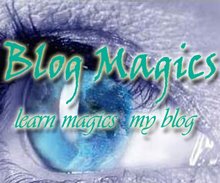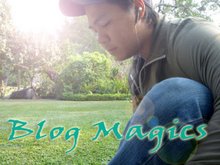Brief History of Magic
2600 B.C. - Present
 Considered the "second oldest profession", Magic has been recorded as far back as 2600 B.C. Though this is still disputed, in an Egyptian tomb there is a hieroglyphic which seems to depict the Cups and Balls trick. Some scholars interpret this painting as just a couple people playing a game.
Considered the "second oldest profession", Magic has been recorded as far back as 2600 B.C. Though this is still disputed, in an Egyptian tomb there is a hieroglyphic which seems to depict the Cups and Balls trick. Some scholars interpret this painting as just a couple people playing a game.The honor of the first "Magician" is usually bestowed upon a character dating back to the Westcar Papyrus (1700 B.C.) by the name of Dedi. He was noted for decapitating fowl and restoring them to perfect health.
Some of the first practitioners of Magic used it to sway the religious beliefs of people. The high priests of Greece rigged temple doors to open and fires to light without any apparent human intervention.
The theatrical aspects of Magic began to be formalized through the performances of a Frenchman by the name of Jean Eugène Robert-Houdin around the 1840's. Called by many as the "Fat
her of Modern Magic", Robert-Houdin enthralled the people of his era with many mechanical wonders he invented. He also has the distinction of stopping a revolution. In Algiers during 1856, the marabouts or religious leaders were inciting the people to break their ties with France. As an envoy of Napoleon III, Robert-Houdin created the Light and Heavy Box which terrified the strongest men the marabouts could find. Robert-Houdin could control this small roughly 8" by 12" box so that though the weakest child could pick it up, the strongest man could not. Though modern audiences would be bored by this simple display of electromagnetic principles, these concepts were totally alien to 18th century Algerians. Robert-Houdin died at 65 in 1871.
Magic in America actually started with the Indian shamans. They would "cure" disease by spitting out chicken blood and bones from their mouth after acting like they had "sucked" the diseased organs out of the sick person. They would also "float" arrows using horse hair as the secret levitating ingredient. (Amazing what you can do around the old campfire.)
Theatrical magicians were itinerants during the late nineteenth century. Among these were Alexander Herrmann and John Henry Anderson, who billed himself as "The Wizard of the North". In Colonial times, Richard Potter would travel and perform feats which fool even today magicians.
Things really started happening in the early 1900's with the emergence of Vaudeville. This launched that little known magician named Houdini and Blackstone, Thurston, and P.T. Selbit, whose claim to fame was "Sawing a Woman in Half"!
As Vaudeville declined, so to a degree did Magic. It received its next leap in the 1970's thanks to the successful television series The Magic Land of Alakazam with its Texas star, Mark Wilson.
Like the tides, Magic's popularity seems to ebb and flow. So it was in 1974, a young Canadian in jeans and tie-dyed t-shirts turned The Magic Show into a huge success on Broadway. Doug Henning went on to dominate the Magic scene on stage and television due to his "hippie" look and high tech illusions. His pinnacle of Magic was the critically panned Broadway show Merlin which brought the wrath of theatre critics, but the praise of Magic lovers. His recreation of the ancient illusion The Gypsy Moth was worth the price of admission in and of itself.
Then Magic really started to heat up with the introduction to the television screens in 1977 of a young New Jersey illusionist by the stage name of David Copperfield. It took him just a couple years to topple the reining Henning for supremacy of the Magic world. His "disco" image and illusions built around storytelling routines captured the imagination of American and then the world. Today he still is the most recognized magician, evident by the recent shows he performed in New York City during the winter holidays that broke all box office records!
You probably know the rest. There's Siegfried and Roy (Lions and Tigers, but no bears in Las Vegas), Lance Burton (a Gentleman's Magician with a lot of birds), Jeff McBride (I'm turning Japanese), Rudy Coby (the Coolest Magician in the World with four legs), and Penn and Teller (non magician Magicians. Yeah, right!) (Please note that these side comments are not intended to be derogatory, but just a quick way of associating something in their acts that you can remember the next time you pick up the TV Guide and see their show listed.)
1996 was a banner year for Magic. More TV specials were broadcasted then ever before. 1997 is already looking to match that record. So stay tuned. Or go to see it live in a theatre, restaurant or here. Ultimately, Magic is the only theatrical art which needs to be seen live in order to truly appreciate it.
by Middletown/Newburgh, New York









No comments:
Post a Comment